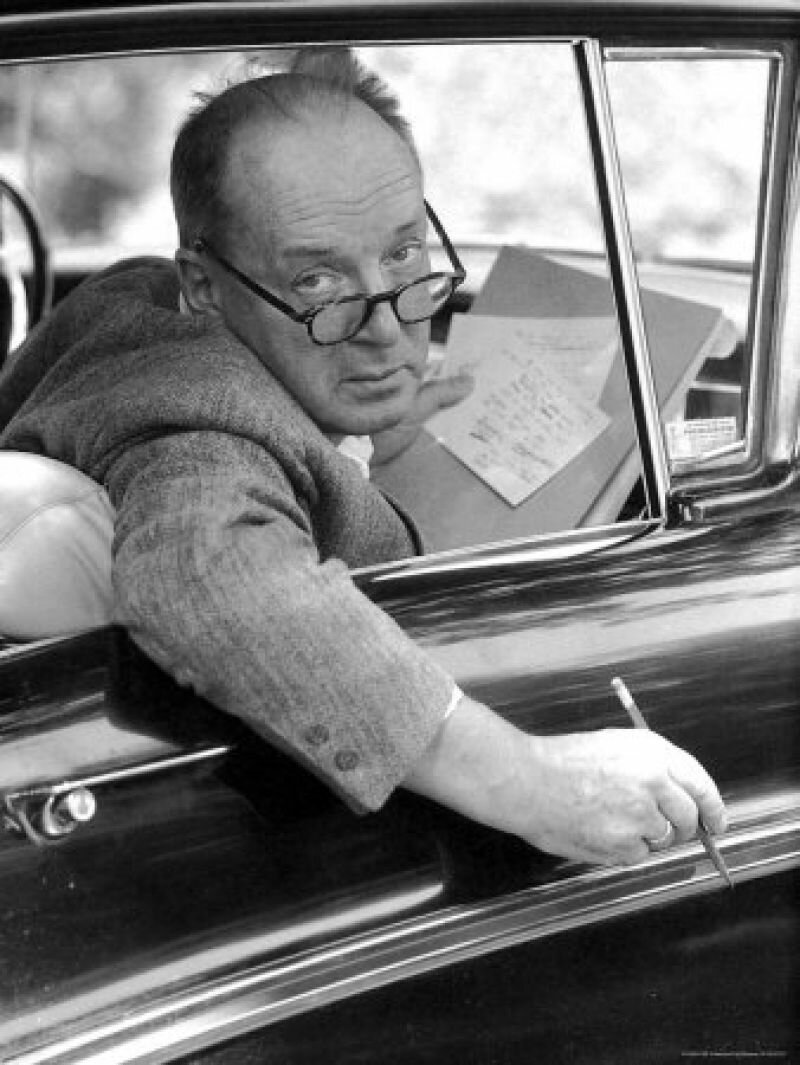“I’m not made of sugar,” says Juri Rytchëu when I offer him a place under my umbrella. And so, his denim jacket slowly becomes completely drenched while we make our way to his residence just outside the centre of St. Petersburg. It’s no wonder that he’s impervious to a downpour. The Chukchian writer (74) was born in Ouelen, a region in the far north eastern part of Sibera on the Bering Strait. He lived in a tent made of animal hide until he was seventeen. Of the approximately fifteen thousand souls that make up his tribe, the Chukchi, he is the first and only writer. His mother tongue is Chukchi. He learned Russian in school, and his English is rudimentary.
For half a century, Rytchëu has divided his time between his area of birth and St. Petersburg. His apartment, part of a casern from 1903 that was once turned into a residential building, is full of Russian literature, arranged behind small glass doors. On his desk are ten or so paperweights in the shape of dogs and polar bears. Rytchëu is the son of a hunter. The bottle of Dutch brandy brought along as a present disappears soundlessly into the fridge. ‘Since I was born I’ve never drank anything stronger than mother’s milk.’ That cannot be said of the characters of his novels.
‘I am the only professional writer in my part of the world. Putting our imagination into words is relatively new to us. Until the nineteen-thirties there was no written form of Chukchi.’ Rytchëu wrote three novels and many short stories. In his Chukchi Bible or the Last Shaman of Ouelen, not yet translated into Dutch, Rytchëu records old and new legends from his people, following the structure of the Bible. He also elaborates on the genealogy of his own family. ‘I write the history of my people. I describe what I know, what I’ve experienced. Some thought that my source would soon run dry, but I have plenty of stories left in my head. What I write is universal. It belongs to others just as much. When I started reading classical literature – Tolstoy, Gorky, Chekov, Dickens – I was very surprised that their characters were ordinary people. They were just like me! That was a great discovery for me. Literature might be the best form of communication. If you merely speak to someone, person to person, you never fully surrender yourself.’ All literature emerges from human life, stresses Rytchëu, from human history.
What Rytchëu writes has to be true. That’s his only literary criterion. ‘My task is to write the truth of my people. When asked about the relation between fact and fiction, Hemingway replied that what he had written was true and what he saw around him wasn’t.’
The same applies to Rytchëu, except that he takes this statement very literally. ‘You know, I used to read a great many books on our people. All of them are nonsense, and all of them are written by whites. That’s why I’ve become a writer. I wanted to put an end to those fables.’
‘What did they write, then?’
‘Maybe worst of all was that they idealised us. We were portrayed as arctic animals, sincere, pure, and free of wicked tendencies. Twaddle, of course. Lying and theft occur amongst us just the same. My kin is like all others. I wanted to testify to that.’
Through a variety of mythologies, Rytchëu arrives at his grandfather, Mletkin, the last shaman of the Chukchi, who call themselves Louoravetlan, or ‘real people’. The shaman, the wisest of all, has knowledge of medicinal herbs, assumes leadership during crises, christens the newborn and communicates, in the name of the populace, with the gods, to whom he regularly dedicates sacrifices. In his book, Rytchëu narrates how Mletkin, in his pursuit for reindeer, whales and a woman, ends up in Alaska and the United States. This happens against his will: he isn’t able to read his contract. The icy sea frozen shut, his way home is blocked off. In order to make some money, Mletkin accepts the offer to represent his tribe as part of the Universal Ethnological Exposition of 1898 held in Chicago. He is exhibited in an original jaranga (a round tent made of reindeer hide) and, by performing his rites as a shaman, becomes one of its top attractions. The chapter is hilarious, as Mletkin is pelted with paper clots like a monkey by the obtuse public. That relations would never be restored between the Chukchi and the Americans goes without saying.
Nonetheless, Rytchëu speaks mildly of those who came to his native land to exploit its resources for their gain. He doesn’t hold a grudge against his character, Mr. Carpenter, a Canadian from his novel A Dream in Polar Fog, who trades with the Chukchi, buying their hides and selling them Winchesters and liquor. ‘None of the sort, Carpenter is just a link to the rest of the world. Some say that European culture has spoiled our pure and untainted character, but that’s simply not true. If you want to belong to the human species, you’ll have to accept all its aspects, the good and the bad. It makes no sense to construct a wall between us and the rest of the world.’
(...)
What, according to Rytchëu, is the essence of European literature? ‘Let me answer you by way of a passage from Tolstoy’s journal. His maid, an elderly woman who lived in with him, asked him to remove the clock from her room. It would tick out loud, which she could not bear. With every ‘tick’ she thought she heard the question: who are you? Who am I? Who are you? Who am I? Literature serves to answer this everlasting question.’



